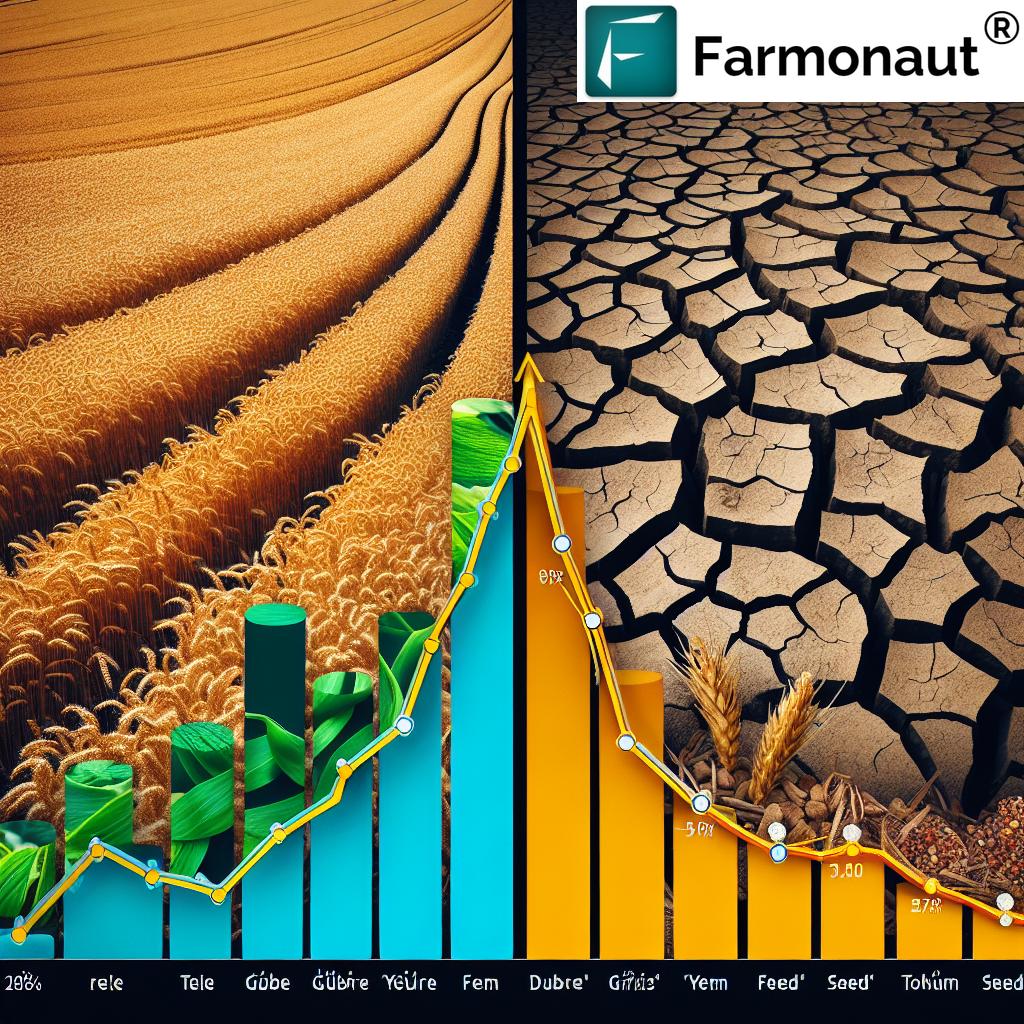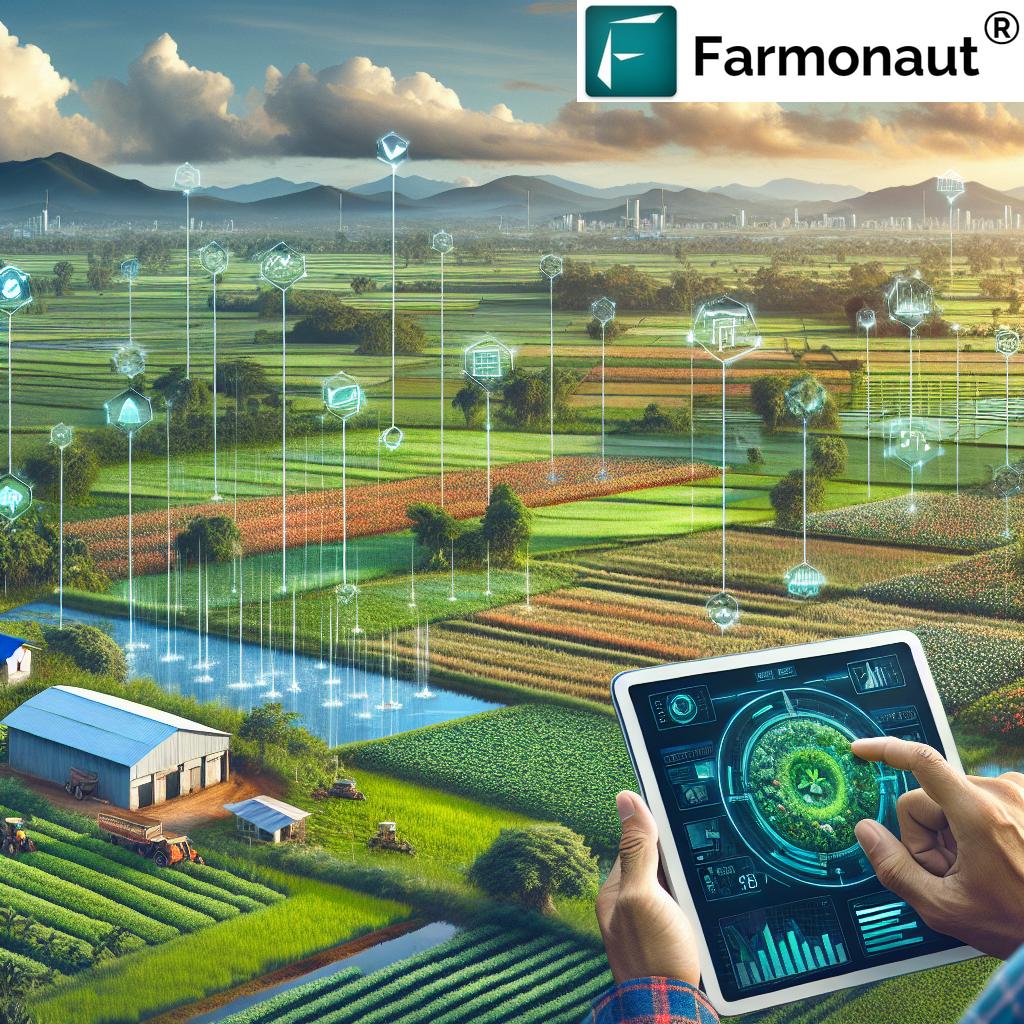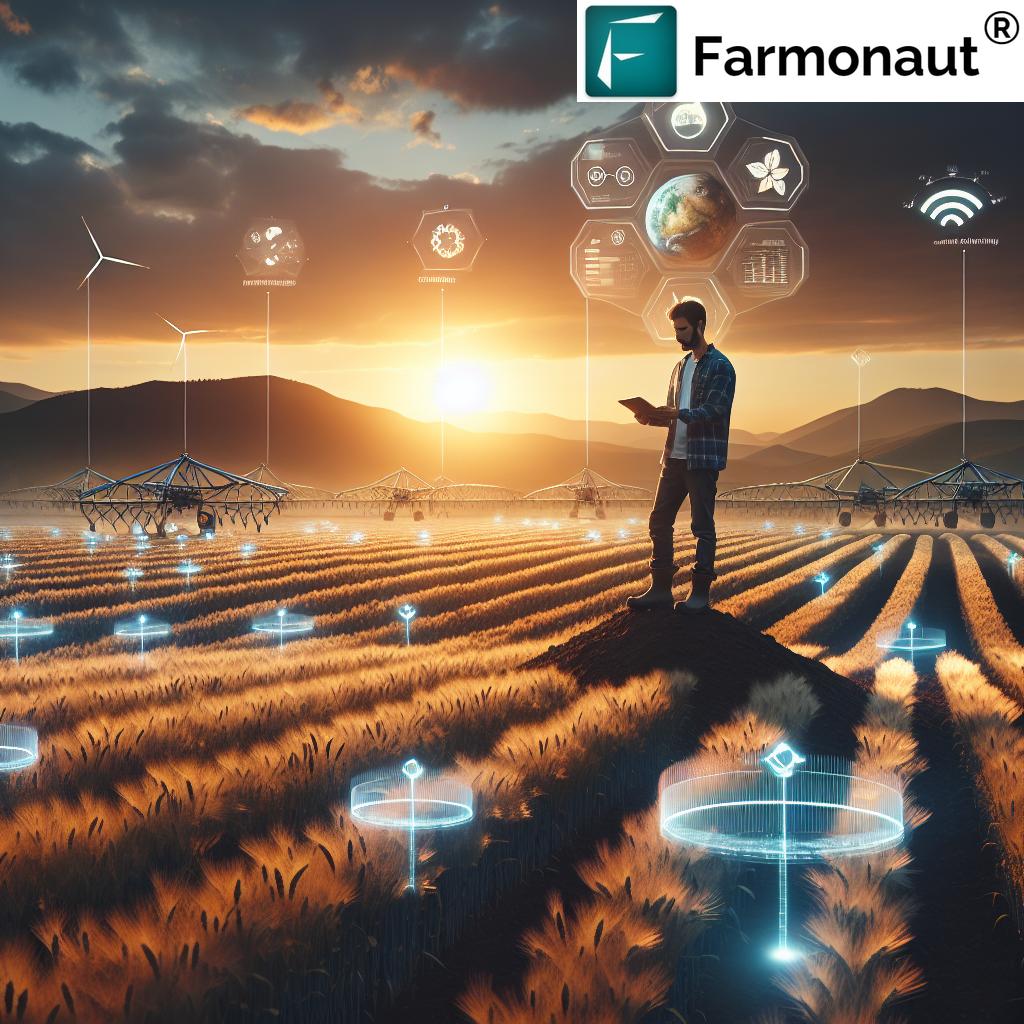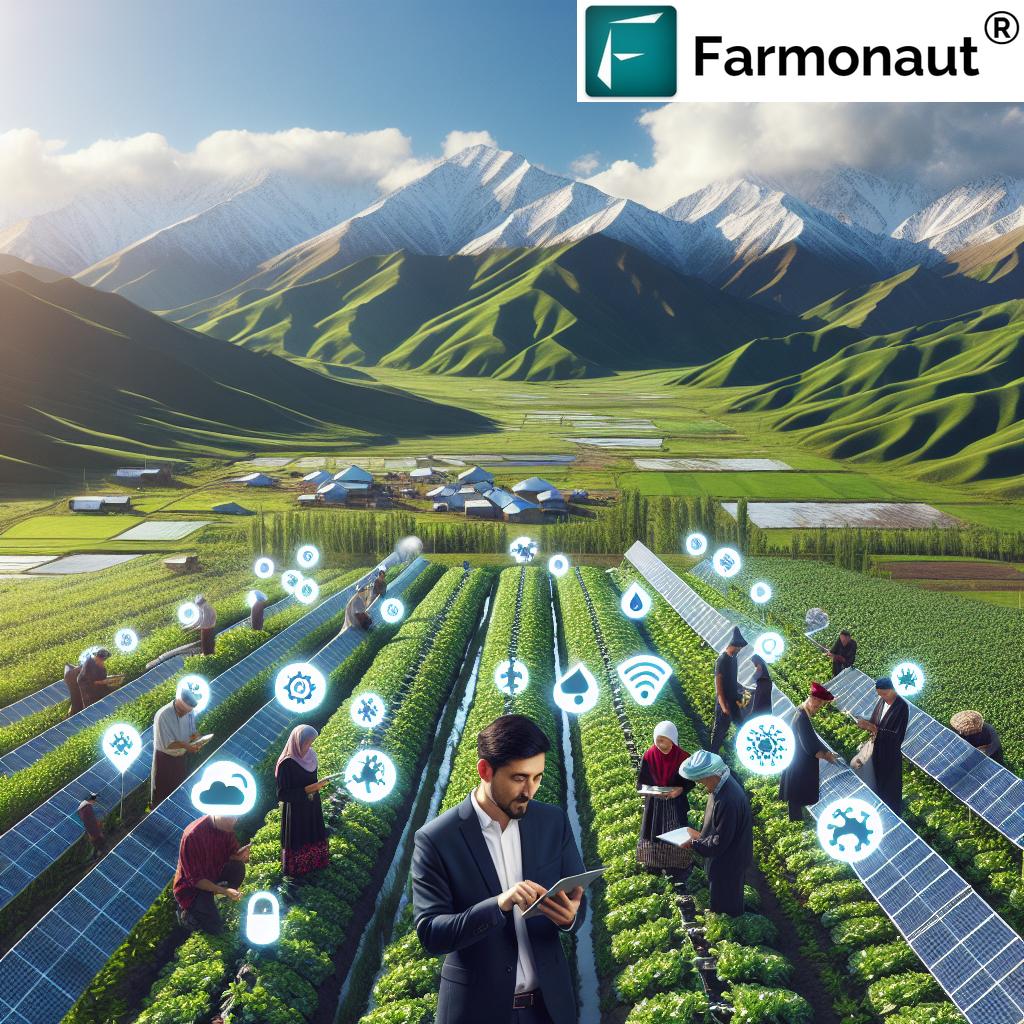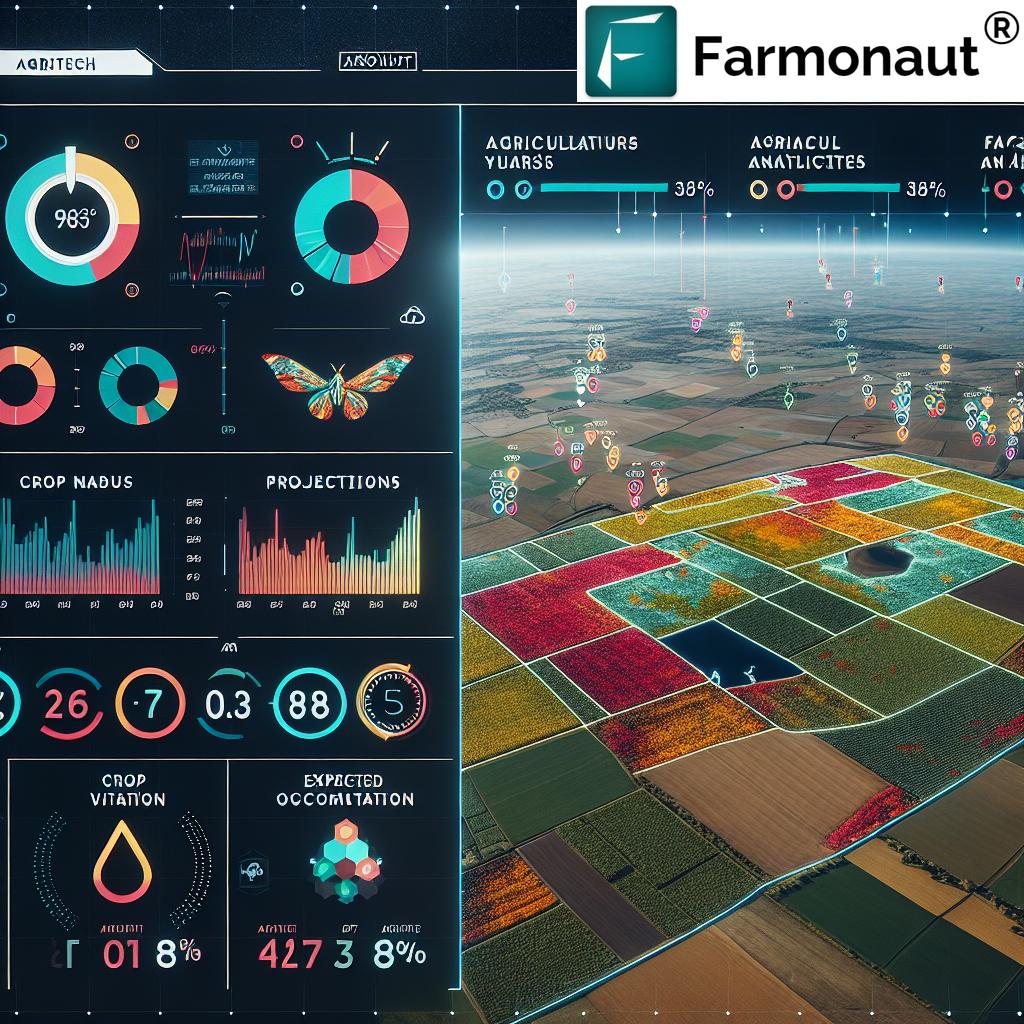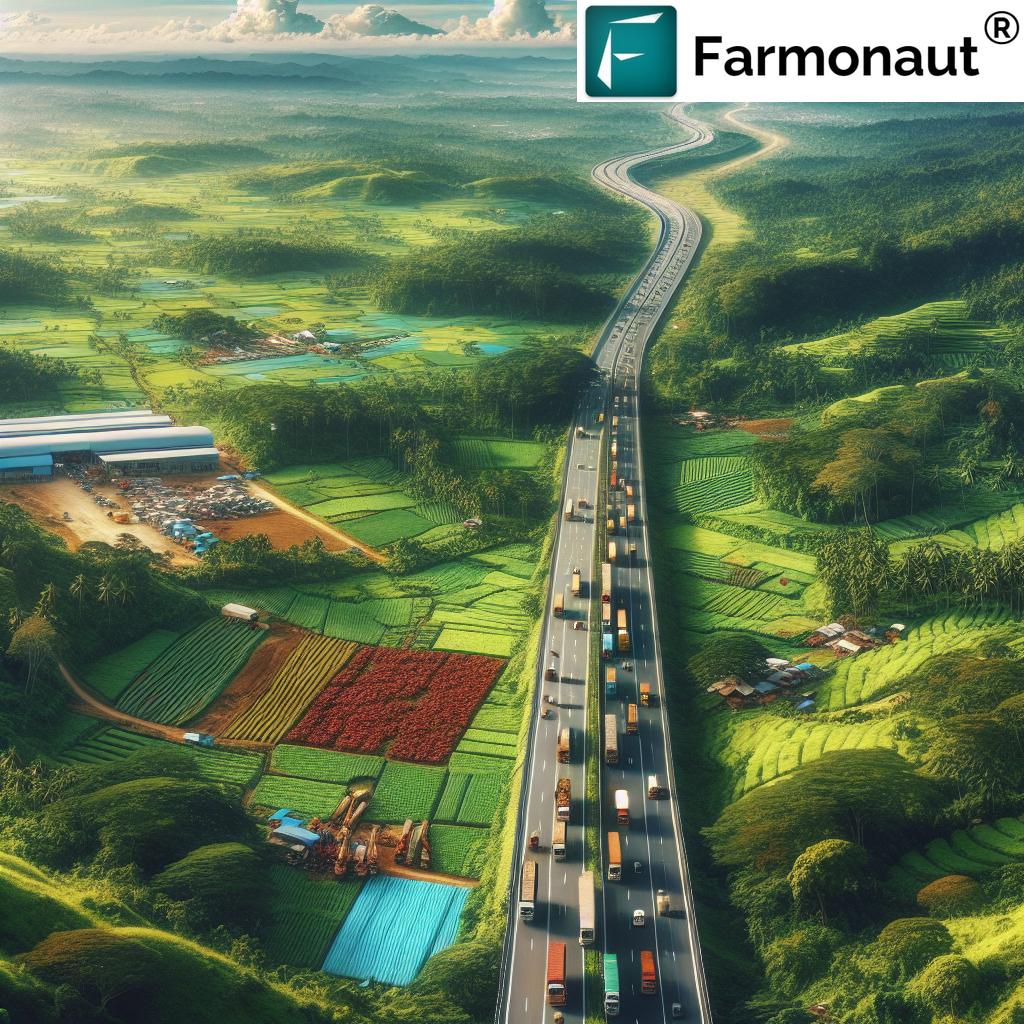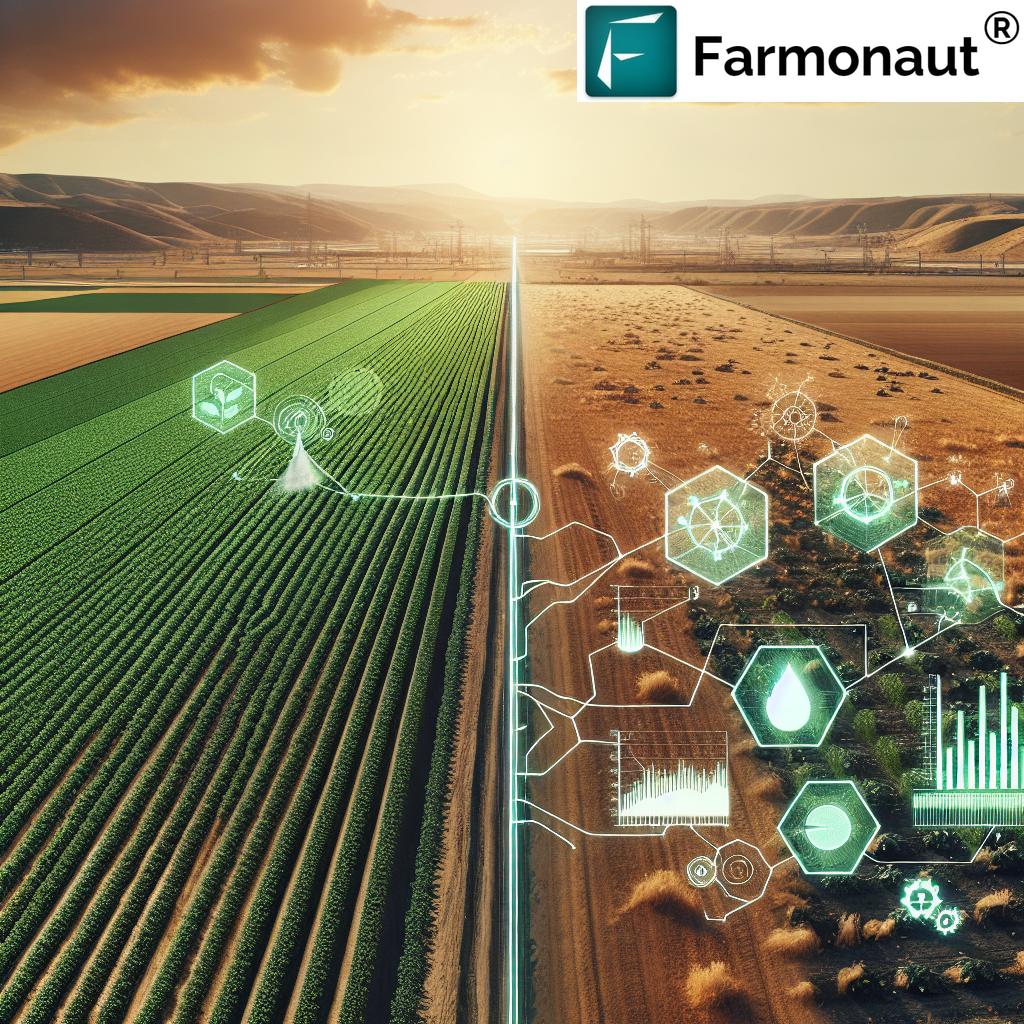Revolutionizing Climate-Smart Agriculture: Azerbaijan’s COP29 Showcases Global Innovation in Sustainable Farming
“COP29 in Baku, Azerbaijan showcased advancements in climate-smart agriculture, addressing impacts of extreme weather on crop yields.”
“The conference explored global initiatives to mobilize investments for sustainable agriculture, potentially creating new revenue streams for farmers.”
As we delve into the groundbreaking outcomes of COP29 held in Baku, Azerbaijan, we find ourselves at the forefront of a global agricultural revolution. The conference has illuminated the path forward for climate-smart agriculture, showcasing how innovative technologies and sustainable farming practices are reshaping our approach to food production in the face of climate change. In this comprehensive analysis, we’ll explore the key developments, initiatives, and technologies that are set to transform the agricultural landscape worldwide.
The Pivotal Role of Climate-Smart Agriculture at COP29
The 2024 United Nations Climate Change Conference (COP29) in Baku, Azerbaijan, marked a significant milestone in the global fight against climate change, with a particular focus on the agricultural sector. For the second time in COP history, an entire day was dedicated to discussions on food and agriculture, underscoring the critical role these sectors play in climate action and sustainable development.
U.S. Agriculture Secretary Tom Vilsack’s address at the conference highlighted the remarkable progress made by the Biden-Harris Administration in positioning U.S. agriculture and forestry as leaders in climate action. This commitment reflects a broader global trend towards adopting climate-smart agricultural practices and technologies.
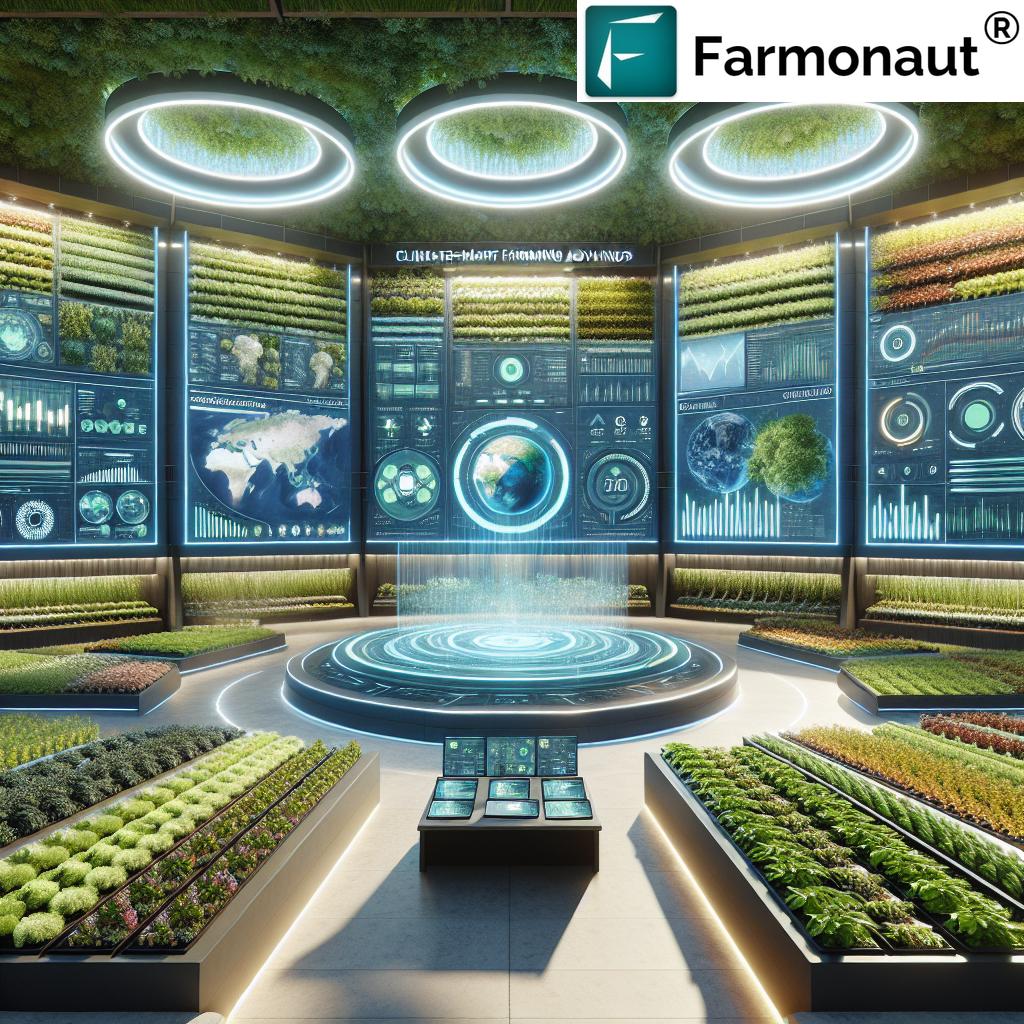
Key Initiatives and Investments in Sustainable Agriculture
The conference brought to light several groundbreaking initiatives and investments aimed at promoting sustainable agriculture and forestry:
- Inflation Reduction Act: Now in its third year, this act aims to nearly double support for voluntary conservation and climate-smart practices on farmland and forested areas.
- Partnerships for Climate-Smart Commodities: This USDA initiative is fostering collaboration to establish markets for climate-smart products, creating economic opportunities for farmers and foresters while advancing climate goals.
- Agriculture Innovation Mission for Climate (AIM for Climate): Since its inception at COP26 in 2021, AIM for Climate has mobilized over $29.2 billion in investments for climate-smart agricultural practices.
These initiatives demonstrate the power of public-private collaboration in driving innovation and sustainability in agriculture. By leveraging agricultural data analytics and fostering a global network of climate-smart producers, the industry is addressing the challenges of a changing climate while creating new revenue opportunities for farmers and foresters.
Technological Advancements in Precision Agriculture
At the heart of climate-smart agriculture lies precision farming technologies. These innovative tools are revolutionizing the way we approach crop management, resource allocation, and environmental conservation. Some key technological advancements showcased at COP29 include:
- Satellite-based crop monitoring: Companies like Farmonaut are leading the charge with advanced satellite imagery analysis for real-time crop health assessment.
- AI-driven advisory systems: Artificial intelligence is being harnessed to provide personalized farm management recommendations, optimizing resource use and crop yields.
- Smart irrigation systems: Precision irrigation technologies are helping farmers conserve water while improving crop productivity.
- Blockchain for supply chain transparency: Blockchain technology is enhancing traceability in agricultural supply chains, promoting sustainability and consumer trust.
These technologies are not just theoretical concepts but are being actively implemented across the globe, transforming agriculture into a more sustainable and resilient industry.
The Impact of Extreme Weather on Agricultural Production
One of the most pressing issues addressed at COP29 was the increasing frequency and severity of extreme weather events and their impact on agricultural production. Droughts, floods, and other climate-related disasters pose significant threats to global food security. The conference emphasized the need for innovative approaches to ensure resilience in the face of these challenges.
Key strategies discussed included:
- Development of drought-resistant crop varieties
- Implementation of flood mitigation techniques in vulnerable areas
- Adoption of regenerative farming practices to improve soil health and water retention
- Use of climate forecasting tools to inform planting and harvesting decisions
By integrating these strategies with advanced technologies like those offered by Farmonaut, farmers can better prepare for and mitigate the impacts of extreme weather events on their crops.
Mobilizing Investments for Sustainable Agriculture and Forestry
A significant focus of COP29 was on mobilizing investments for sustainable agriculture and forestry projects. The conference explored various mechanisms to channel funds into climate-smart agricultural initiatives, including:
- Green bonds and climate-focused investment funds
- Public-private partnerships for large-scale sustainable agriculture projects
- Carbon credit markets for agriculture and forestry
- Innovative financing models for smallholder farmers adopting sustainable practices
These investment strategies are crucial for scaling up climate-smart agriculture globally and ensuring that farmers and foresters have the resources they need to transition to more sustainable practices.
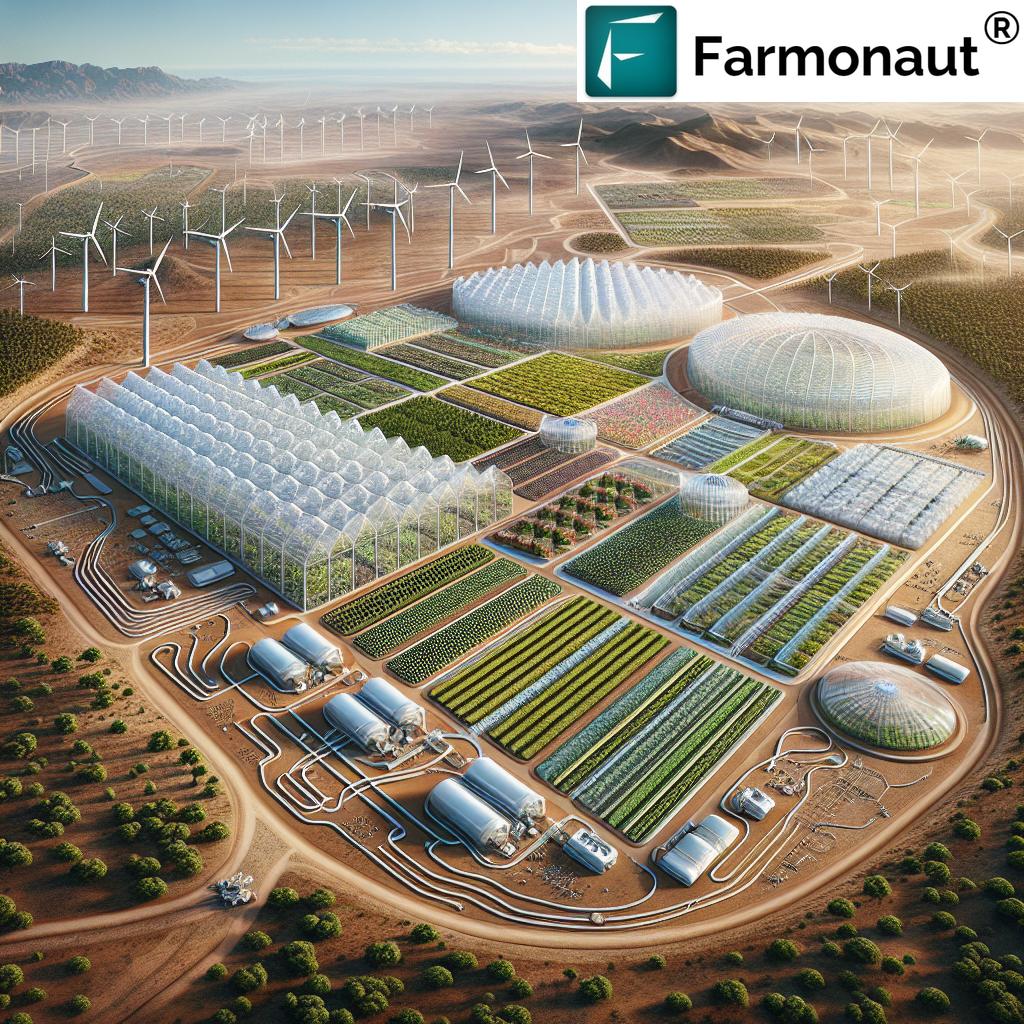
The Role of Agtech Solutions in Climate-Smart Agriculture
Agtech solutions, such as those provided by Farmonaut, are playing a pivotal role in the transition to climate-smart agriculture. These technologies offer farmers powerful tools for crop yield optimization, resource management, and environmental stewardship. Some key features of modern agtech solutions include:
- Satellite-based crop health monitoring for early detection of issues
- AI-powered predictive analytics for pest and disease management
- Precision application of inputs to reduce waste and environmental impact
- Integration with weather data for improved decision-making
By leveraging these technologies, farmers can significantly improve their productivity while reducing their environmental footprint. For instance, Farmonaut’s platform provides valuable services such as real-time crop health monitoring, AI-based advisory systems, and resource management tools, making precision agriculture more accessible and affordable for farmers worldwide.
Explore Farmonaut’s innovative agtech solutions:
Regenerative Farming Techniques: A Path to Sustainability
Regenerative farming techniques emerged as a key topic at COP29, with experts highlighting their potential to not only mitigate climate change but also to improve soil health, biodiversity, and farm profitability. These practices include:
- Cover cropping to protect and enrich soil
- No-till or reduced tillage farming to minimize soil disturbance
- Crop rotation to improve soil fertility and break pest cycles
- Integrated livestock management for natural fertilization
By adopting these regenerative practices, farmers can enhance their land’s resilience to climate impacts while also contributing to carbon sequestration efforts. Technologies like Farmonaut’s satellite-based monitoring can help farmers track the impact of these practices on their land over time, providing valuable data to guide decision-making and demonstrate environmental benefits.
Global Initiatives for Climate-Smart Agriculture
COP29 showcased a range of global initiatives aimed at promoting climate-smart agriculture. Let’s take a closer look at some of these impactful programs:
| Initiative Name | Country/Region | Primary Focus | Estimated Carbon Reduction Potential (tons CO2e/year) | Key Technologies Employed | Projected Impact on Crop Yield (%) | Investment Required (millions USD) |
|---|---|---|---|---|---|---|
| AIM for Climate | Global (56 countries) | Climate-smart agricultural innovation | 500,000 | Various (AI, IoT, Precision Agriculture) | 15-20% | 29,200 |
| Partnerships for Climate-Smart Commodities | United States | Market development for climate-smart products | 300,000 | Blockchain, Satellite Monitoring | 10-15% | 3,000 |
| European Green Deal Farm to Fork Strategy | European Union | Sustainable food systems | 400,000 | Precision Agriculture, Biotechnology | 5-10% | 10,000 |
| Farmonaut Precision Agriculture Initiative | India (with global outreach) | Satellite-based farm management | 100,000 | Satellite Imagery, AI, Blockchain | 20-25% | 50 |
| African Climate-Smart Agriculture Alliance | Sub-Saharan Africa | Resilient agricultural practices | 250,000 | Drought-resistant crops, Water management | 30-35% | 1,500 |
These initiatives demonstrate the global commitment to transforming agriculture in the face of climate change. By combining innovative technologies, sustainable practices, and significant investments, these programs are paving the way for a more resilient and productive agricultural sector worldwide.
The Future of Climate-Smart Agriculture: Challenges and Opportunities
As we look to the future of climate-smart agriculture, several challenges and opportunities emerge:
- Technology Adoption: While technologies like those offered by Farmonaut are becoming more accessible, there’s still a need to bridge the digital divide in rural areas.
- Policy Support: Governments must continue to develop policies that incentivize the adoption of climate-smart practices and technologies.
- Education and Training: Farmers and agricultural professionals need ongoing education to effectively implement new sustainable practices and technologies.
- Market Development: Creating and expanding markets for climate-smart commodities will be crucial for long-term sustainability.
- Data Integration: Improving the integration and analysis of agricultural data will be key to maximizing the benefits of precision agriculture.
Despite these challenges, the opportunities presented by climate-smart agriculture are immense. By embracing innovative technologies and sustainable practices, we can create a more resilient, productive, and environmentally friendly agricultural sector.
Conclusion: A New Era for Global Agriculture
The discussions and initiatives showcased at COP29 in Baku, Azerbaijan, mark the dawn of a new era in global agriculture. By embracing climate-smart practices and leveraging cutting-edge technologies, we’re not just adapting to climate change – we’re actively working to mitigate its effects while ensuring food security for future generations.
As we move forward, the role of innovative companies like Farmonaut in providing accessible, affordable precision agriculture solutions will be crucial. By making these technologies available to farmers worldwide, we can accelerate the transition to more sustainable and resilient farming practices.
The path ahead is challenging, but with continued collaboration between governments, private sector innovators, and farmers, we can build a more sustainable and productive agricultural future. The seeds of change have been sown at COP29 – now it’s up to all of us to nurture them into a thriving, climate-smart agricultural ecosystem.
Farmonaut Subscriptions
Frequently Asked Questions
Q: What is climate-smart agriculture?
A: Climate-smart agriculture is an approach that helps guide actions to transform agricultural systems to effectively support development and ensure food security in a changing climate. It aims to sustainably increase agricultural productivity and incomes, adapt and build resilience to climate change, and reduce greenhouse gas emissions where possible.
Q: How does precision agriculture contribute to sustainability?
A: Precision agriculture uses technology to optimize resource use, reduce waste, and improve crop yields. By applying inputs like water, fertilizers, and pesticides more precisely, it minimizes environmental impact while maximizing productivity.
Q: What role do satellite technologies play in modern farming?
A: Satellite technologies, like those used by Farmonaut, provide farmers with valuable data on crop health, soil moisture, and weather patterns. This information helps farmers make informed decisions about irrigation, fertilization, and pest management, leading to more efficient and sustainable farming practices.
Q: How can small-scale farmers benefit from climate-smart agriculture technologies?
A: Small-scale farmers can benefit from climate-smart technologies through improved crop yields, reduced input costs, and better resilience to climate impacts. Platforms like Farmonaut make these technologies more accessible and affordable, allowing smaller farms to compete more effectively in the market.
Q: What are some key challenges in implementing climate-smart agriculture globally?
A: Key challenges include the need for significant investment in new technologies and practices, overcoming barriers to technology adoption in rural areas, addressing diverse agricultural conditions across different regions, and ensuring that smallholder farmers are not left behind in the transition to more sustainable practices.
For more information on how Farmonaut is contributing to climate-smart agriculture, visit our web app or explore our API for developers. You can also find detailed information in our API Developer Docs.





